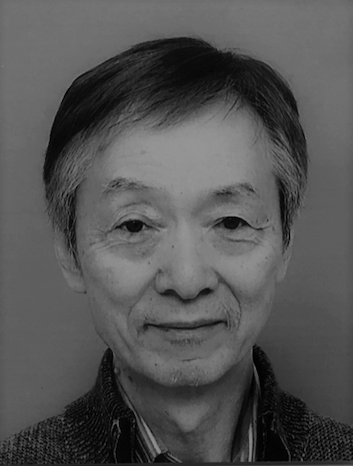|
HUPO Awards - 2020 Recipients |
Distinguished Achievement in Proteomic Sciences AwardThe Distinguished Achievement in Proteomic Sciences Award recognizes a scientist for distinguished scientific achievements in the field of proteomic science. (Sponsored by the Journal of Proteome Research - ACS Publications) Shared by two recipients Fuchu He
Karin Rodland
Discovery in Proteomic Sciences AwardThe Discovery in Proteomic Sciences Award recognizes a scientist for a single discovery in the field of proteomics. (Sponsored by Journal of Proteomics - ELSEVIER BV) Shared by two recipients Benjamin Garcia
Ben Collins
Clinical and Translational Proteomics AwardThis award recognizes a scientist in the field of clinical and translational proteomics. (Sponsored by Clinical Proteomics - BioMed Central) Tadashi Yamamoto
Science and Technology AwardThe Science and Technology Award recognizes an individual or team in private industry who played a key role in commercialization of a proteomics technology, product, or procedure. The emphasis for the award is on making the technology, product, or procedure widely available, which is different from the basic scientific invention. (Sponsored by the HUPO Industrial Advisory Board) Melvin A. Park and Oliver Raether, Bruker Daltonics Inc.
|

 Dr. He is the leading scientist studying proteomics in China and liver proteomics in the world. He was the founder of Chinese arm of HUPO (CNHUPO) and among the first group of people who founded HUPO in 2001. He was the first Chinese scientist who led an international consortium- Human Liver Proteome Project (HLPP), and the founder of Beijing Proteome Research Center, Phoenix Center (proteomics) and Institutes of Biomedical Sciences Fudan University. The past 21 years have witnessed his great contributions and impact to the field of proteomics. He initiated over 10 programs of proteomics research in China, successfully organized 13 international and national proteomics conferences and over 30 training courses, including the 3rd HUPO Congress, the 6th AOHUPO Congress and Nature Conference: Life science in the age of big data, which greatly promoted proteomics research in China and beyond. Through his tireless efforts, China now is a power house in the area of proteomics and has contributed significantly the global landscapes of proteomics.
Dr. He is the leading scientist studying proteomics in China and liver proteomics in the world. He was the founder of Chinese arm of HUPO (CNHUPO) and among the first group of people who founded HUPO in 2001. He was the first Chinese scientist who led an international consortium- Human Liver Proteome Project (HLPP), and the founder of Beijing Proteome Research Center, Phoenix Center (proteomics) and Institutes of Biomedical Sciences Fudan University. The past 21 years have witnessed his great contributions and impact to the field of proteomics. He initiated over 10 programs of proteomics research in China, successfully organized 13 international and national proteomics conferences and over 30 training courses, including the 3rd HUPO Congress, the 6th AOHUPO Congress and Nature Conference: Life science in the age of big data, which greatly promoted proteomics research in China and beyond. Through his tireless efforts, China now is a power house in the area of proteomics and has contributed significantly the global landscapes of proteomics. Dr. Karin Rodland’s many achievements include her decades long commitment to the application of cutting-edge mass spectrometry technologies to compelling biological problems. She has provided biological focus to the proteomics group at PNNL since 2002, insuring that the technologies were applied to the most significant biomedical problems and that issues of experimental design and data analysis reflected the needs of the biomedical community. Dr. Rodland has published extensively in the field of proteomics, on the use of mass spectrometry to further understanding of basic biological processes. She was among the first to characterize the role of the G-protein coupled calcium-sensing receptor in modulating proliferation-associated signal transduction pathways. However, her impact can be better quantified in terms of her unique ability to establish collaborations that bring cutting-edge proteomics technologies into the translational cancer medicine space through the application of proteogenomics to understand drug response and therapeutic resistance.
Dr. Karin Rodland’s many achievements include her decades long commitment to the application of cutting-edge mass spectrometry technologies to compelling biological problems. She has provided biological focus to the proteomics group at PNNL since 2002, insuring that the technologies were applied to the most significant biomedical problems and that issues of experimental design and data analysis reflected the needs of the biomedical community. Dr. Rodland has published extensively in the field of proteomics, on the use of mass spectrometry to further understanding of basic biological processes. She was among the first to characterize the role of the G-protein coupled calcium-sensing receptor in modulating proliferation-associated signal transduction pathways. However, her impact can be better quantified in terms of her unique ability to establish collaborations that bring cutting-edge proteomics technologies into the translational cancer medicine space through the application of proteogenomics to understand drug response and therapeutic resistance. Dr. Ben Garcia has for a long time developed novel MS based experimental and computational platforms for characterization of histone PTMs. These methods include: (i) Development of advanced methodology for Bottom Up MS improved quantification and high-throughput analyses of histone PTMs. (ii) Generation of new chromatographic and Middle Down MS based methods for high-throughput quantitative tracking of thousands of combinatorial Histone Codes in a single experiment. (iii) Creation of novel approaches using quantitative MS in combination with in vivo metabolic labeling of specific PTMs to monitor the progression and dynamics of distinct histone modifications during their cellular lifespan and in response to external perturbation. (iv) Combining genomic approaches with MS to characterize specific regions of the genome with the goal of analyzing all the histone PTMs and non-histone proteins found on individual genes. (v) Development of structural mass spectrometry approaches to understand the make-up and structure/conformation of the repeating unit of chromatin, the nucleosome. His impact in the area of histone proteomics cannot be overstated, and his work has been transformative across multiple fields of study. Lastly, the many novel histone PTMs, variants and mutations he has discovered have spurned a multitude of further studies by chromatin biologists who are now devoting significant efforts to study their underlying function and consequence in human biology and disease.
Dr. Ben Garcia has for a long time developed novel MS based experimental and computational platforms for characterization of histone PTMs. These methods include: (i) Development of advanced methodology for Bottom Up MS improved quantification and high-throughput analyses of histone PTMs. (ii) Generation of new chromatographic and Middle Down MS based methods for high-throughput quantitative tracking of thousands of combinatorial Histone Codes in a single experiment. (iii) Creation of novel approaches using quantitative MS in combination with in vivo metabolic labeling of specific PTMs to monitor the progression and dynamics of distinct histone modifications during their cellular lifespan and in response to external perturbation. (iv) Combining genomic approaches with MS to characterize specific regions of the genome with the goal of analyzing all the histone PTMs and non-histone proteins found on individual genes. (v) Development of structural mass spectrometry approaches to understand the make-up and structure/conformation of the repeating unit of chromatin, the nucleosome. His impact in the area of histone proteomics cannot be overstated, and his work has been transformative across multiple fields of study. Lastly, the many novel histone PTMs, variants and mutations he has discovered have spurned a multitude of further studies by chromatin biologists who are now devoting significant efforts to study their underlying function and consequence in human biology and disease. Dr. Ben Collins is among the most prominent members of a rapidly growing research community that have transformed DIA from an attractive conceptual curiosity into the robust, benchmarked and widely used technique. Ben’s advances include: • Developing AP-SWATH method to characterize dynamic changes in protein interaction networks. • Co-leading an international consortium of 11 labs that demonstrated high interlab and intralab robustness and reproducibility of DIA data in large cohorts. • Having a leading role in developing robust FDR estimation methods in large datasets acquired by DIA. These are now recognized as standard and prevent, at an early stage of the technology, problems of false positive inflation. • Senior contributor to the development of the SEC-SWATH method to quantify the organization and redistribution of cellular protein complexes in perturbed systems. The improvements in data quality and robustness enabled by DIA are now driving the adoption of proteomic approaches more broadly in life sciences and will continue to do so as further developments are made. Ben has played a major role in this process both from the technology development and application perspectives.
Dr. Ben Collins is among the most prominent members of a rapidly growing research community that have transformed DIA from an attractive conceptual curiosity into the robust, benchmarked and widely used technique. Ben’s advances include: • Developing AP-SWATH method to characterize dynamic changes in protein interaction networks. • Co-leading an international consortium of 11 labs that demonstrated high interlab and intralab robustness and reproducibility of DIA data in large cohorts. • Having a leading role in developing robust FDR estimation methods in large datasets acquired by DIA. These are now recognized as standard and prevent, at an early stage of the technology, problems of false positive inflation. • Senior contributor to the development of the SEC-SWATH method to quantify the organization and redistribution of cellular protein complexes in perturbed systems. The improvements in data quality and robustness enabled by DIA are now driving the adoption of proteomic approaches more broadly in life sciences and will continue to do so as further developments are made. Ben has played a major role in this process both from the technology development and application perspectives. Dr. Tadashi Yamamoto is a pioneer of proteomics of kidney diseases and urine biomarker discovery since he engaged in the HUPO Human Kidney & Urine Proteome Project (HKUPP) as the chair in 2005 and contributed in a major way to the introduction of proteomics in nephrology. During his chairmanship for about 10 years, the HKUPP provided the HKUPP guide for urine sample collection for urine proteomics and collected proteome datasets of urine, kidney and urinary tract organ through international collaborations. Dr. Yamamoto and his colleagues have developed protocols for proteomics of formalin-fixed paraffin-embedded human kidney biopsy tissues and analyzed chronic kidney disease (CKD) with glomerular sections collected by a laser micro-dissection system to understand protein interactions in the glomerulus by proteomics. Dr. Yamamoto is now expanding this approach to discover biomarkers for other diseases, such as diabetes and its complication and cancers by establishing urinary native peptide separation and label-free peptidomics as well. The proteomic analysis of patient kidney biopsy samples introduced by Dr. Yamamoto opened new insights into kidney tissue injury and reactions, which are not easily evaluated by regular pathological examination. The individual biopsy tissue proteomics will help understand disease conditions more precisely than histology and will contribute to precision medicine of CKD patients. In addition, the discovery of urine biomarkers for kidney segment-specific injuries will not only contribute to individual CKD patient care by the precise recognition of kidney injuries but also to facilitate development of new treatments for CKD, which have not achieved yet, by providing the urine biomarkers for evaluation of efficiency of new treatments. Dr. Yamamoto is developing a proteomics assay systems in clinical laboratories for evaluation of hundreds of urinary biomarkers at once and has already achieved a throughput to analyze more than one thousand proteins in individual urine sample at a speed of ~50 analyses a day. Such proteomics systems may be used as a general laboratory equipment in the future for quantitation of multiple disease markers in urine since it does not need to develop antibodies as immunoassay.
Dr. Tadashi Yamamoto is a pioneer of proteomics of kidney diseases and urine biomarker discovery since he engaged in the HUPO Human Kidney & Urine Proteome Project (HKUPP) as the chair in 2005 and contributed in a major way to the introduction of proteomics in nephrology. During his chairmanship for about 10 years, the HKUPP provided the HKUPP guide for urine sample collection for urine proteomics and collected proteome datasets of urine, kidney and urinary tract organ through international collaborations. Dr. Yamamoto and his colleagues have developed protocols for proteomics of formalin-fixed paraffin-embedded human kidney biopsy tissues and analyzed chronic kidney disease (CKD) with glomerular sections collected by a laser micro-dissection system to understand protein interactions in the glomerulus by proteomics. Dr. Yamamoto is now expanding this approach to discover biomarkers for other diseases, such as diabetes and its complication and cancers by establishing urinary native peptide separation and label-free peptidomics as well. The proteomic analysis of patient kidney biopsy samples introduced by Dr. Yamamoto opened new insights into kidney tissue injury and reactions, which are not easily evaluated by regular pathological examination. The individual biopsy tissue proteomics will help understand disease conditions more precisely than histology and will contribute to precision medicine of CKD patients. In addition, the discovery of urine biomarkers for kidney segment-specific injuries will not only contribute to individual CKD patient care by the precise recognition of kidney injuries but also to facilitate development of new treatments for CKD, which have not achieved yet, by providing the urine biomarkers for evaluation of efficiency of new treatments. Dr. Yamamoto is developing a proteomics assay systems in clinical laboratories for evaluation of hundreds of urinary biomarkers at once and has already achieved a throughput to analyze more than one thousand proteins in individual urine sample at a speed of ~50 analyses a day. Such proteomics systems may be used as a general laboratory equipment in the future for quantitation of multiple disease markers in urine since it does not need to develop antibodies as immunoassay. Mel Park and Oliver Raether are recognized for the commercialization of the Trapped Ion Mobility Spectrometry (TIMS) Parallel Accumulation Serial Fragment (PASEF) method which takes advantage of the unique features of the TIMS device to improve MS/MS sequencing speed and sensitivity on QTOF Instruments. TIMS was developed as a compact and convenient way to perform true ion mobility measurements using an electric field gradient to trap ions in a flowing gas. A 5 cm TIMS device achieves the same resolution as a 2-meter-long drift tube ion mobility system, without the high voltages and ion losses. Coupling the TimsTOF PASEF method is transformative with the combination of increased MS/MS speed with improved sensitivity is helping to revolutionize the field of proteomics improving proteome coverage and sample throughput such as studies of large clinical cohorts, e.g; plasma proteomics or urine proteomics. High sensitivity proteomics for single cell, immunopeptidomics and proteomics of tissue biopsies, label free quantitation, SILAC, DIA and PRM proteomics are all applicable to the TimsTOF PASEF instrument.
Mel Park and Oliver Raether are recognized for the commercialization of the Trapped Ion Mobility Spectrometry (TIMS) Parallel Accumulation Serial Fragment (PASEF) method which takes advantage of the unique features of the TIMS device to improve MS/MS sequencing speed and sensitivity on QTOF Instruments. TIMS was developed as a compact and convenient way to perform true ion mobility measurements using an electric field gradient to trap ions in a flowing gas. A 5 cm TIMS device achieves the same resolution as a 2-meter-long drift tube ion mobility system, without the high voltages and ion losses. Coupling the TimsTOF PASEF method is transformative with the combination of increased MS/MS speed with improved sensitivity is helping to revolutionize the field of proteomics improving proteome coverage and sample throughput such as studies of large clinical cohorts, e.g; plasma proteomics or urine proteomics. High sensitivity proteomics for single cell, immunopeptidomics and proteomics of tissue biopsies, label free quantitation, SILAC, DIA and PRM proteomics are all applicable to the TimsTOF PASEF instrument.
.png)
















